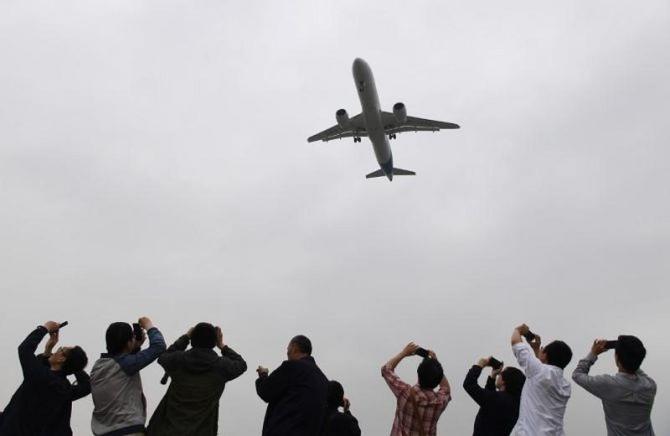India has recorded the second-highest increase in domestic airfares in the Asia-Pacific (APAC) and West Asian regions, climbing by 43 per cent in the first half of 2024 compared to pre-pandemic levels in 2019, second only to Vietnam (63 per cent).

India ranks third in fare increases during the same period in international skies, behind the United Arab Emirates (UAE) and Malaysia.
The airfare study conducted by Airports Council International (ACI), which represents 617 airports in this region, was done in partnership with Flare Aviation Consulting.
The findings were discussed during a board meeting held on Monday.
The study examined airfare trends across over 60,000 routes in 19 countries, providing a detailed view of post-pandemic recovery in the region.
In the domestic market, Vietnam topped the list of air tariff increases, followed by India.
Malaysia (36 per cent), Thailand (26 per cent), and Australia (21 per cent) also saw considerable increases, particularly in countries with a sizeable domestic market.
In international skies, both India and Vietnam reported a 16 per cent rise in airfares, placing them in third position.
The UAE led the list with a 22 per cent increase in airfares during the same period, followed by Malaysia (21 per cent), Australia (14 per cent), and Thailand (7 per cent), with the most pronounced increases coming from low-cost carriers.
The average increase in airfares across the region was around 10 per cent.
Stefano Baronci, director-general of ACI APAC and West Asia, said: “While passenger numbers in APAC are returning to pre-pandemic levels this year, many travellers are paying much more, especially on domestic routes.
"This indicates that the demand for air travel is likely higher than in 2019.
"We must ensure that rising airfares do not become a barrier for potential customers.”
Baronci explained that airfares are determined by a complex pricing system set by airlines.
For instance, routes reliant on a single airline saw fare increases of over 25 per cent, while those with steady competition experienced only about a 10 per cent rise.
He added that the increase in fares is not related to airport charges.
For a long time, airport charges have represented a stable component of airlines’ operating costs, averaging around 4 per cent.
From 2019 to 2024, airport charges have decreased by 7 per cent for domestic flights and increased by only 6 per cent for international flights, making their influence on the recent rise in airfares in the region negligible.
However, airlines point out that one key reason for fare increases is the rise in aviation turbine fuel (ATF) prices, particularly in the domestic market.
In India, for example, the price of ATF has risen by over 35 per cent from the end of 2019 to November 2024, now reaching Rs 84,000 per kilolitre.
Fuel still accounts for 35-40 per cent of airlines’ operating costs.
In addition, airlines incurred huge losses during the pandemic, which must be addressed for their survival.










